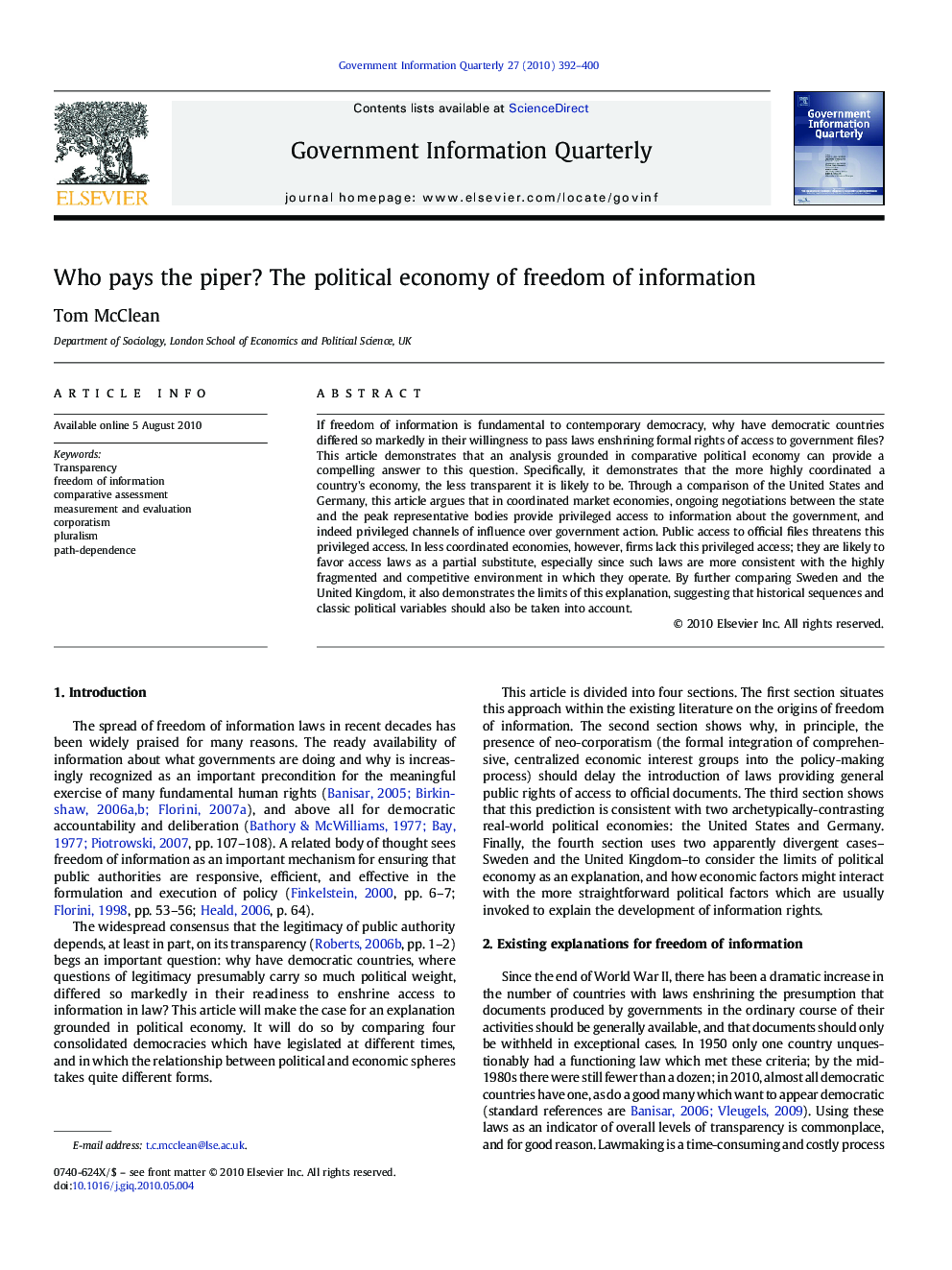| Article ID | Journal | Published Year | Pages | File Type |
|---|---|---|---|---|
| 1024845 | Government Information Quarterly | 2010 | 9 Pages |
If freedom of information is fundamental to contemporary democracy, why have democratic countries differed so markedly in their willingness to pass laws enshrining formal rights of access to government files? This article demonstrates that an analysis grounded in comparative political economy can provide a compelling answer to this question. Specifically, it demonstrates that the more highly coordinated a country's economy, the less transparent it is likely to be. Through a comparison of the United States and Germany, this article argues that in coordinated market economies, ongoing negotiations between the state and the peak representative bodies provide privileged access to information about the government, and indeed privileged channels of influence over government action. Public access to official files threatens this privileged access. In less coordinated economies, however, firms lack this privileged access; they are likely to favor access laws as a partial substitute, especially since such laws are more consistent with the highly fragmented and competitive environment in which they operate. By further comparing Sweden and the United Kingdom, it also demonstrates the limits of this explanation, suggesting that historical sequences and classic political variables should also be taken into account.
